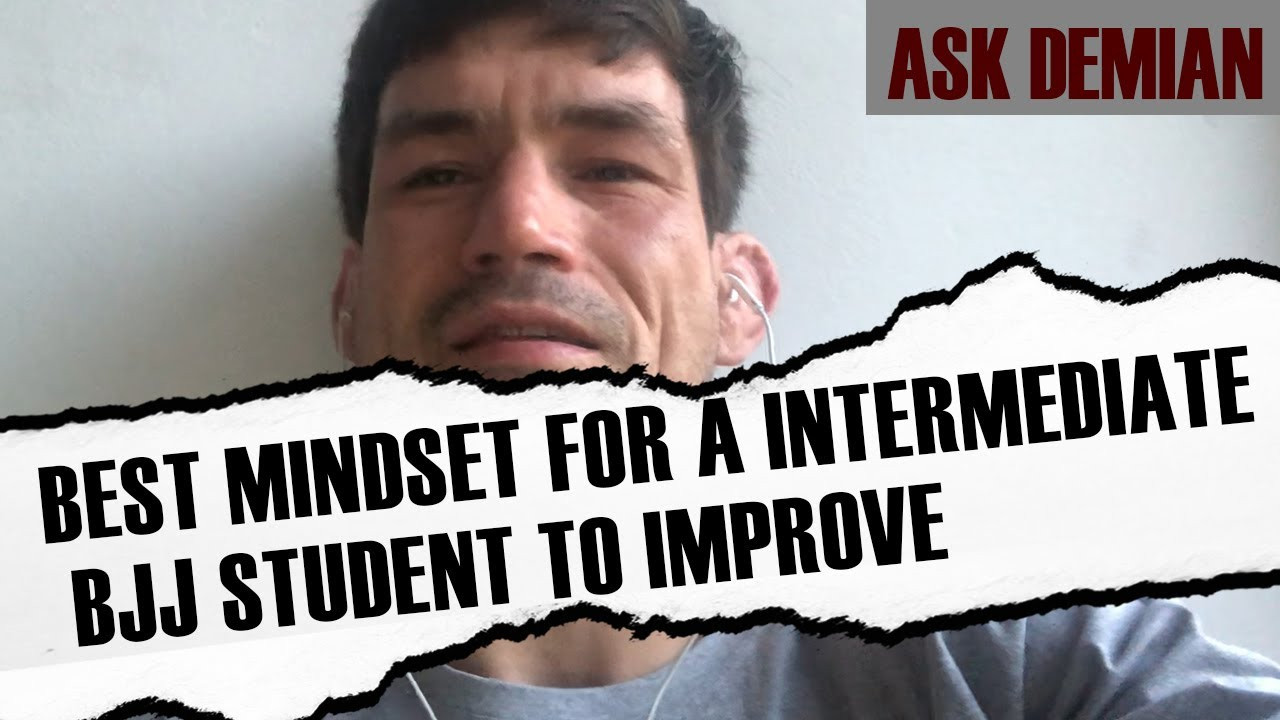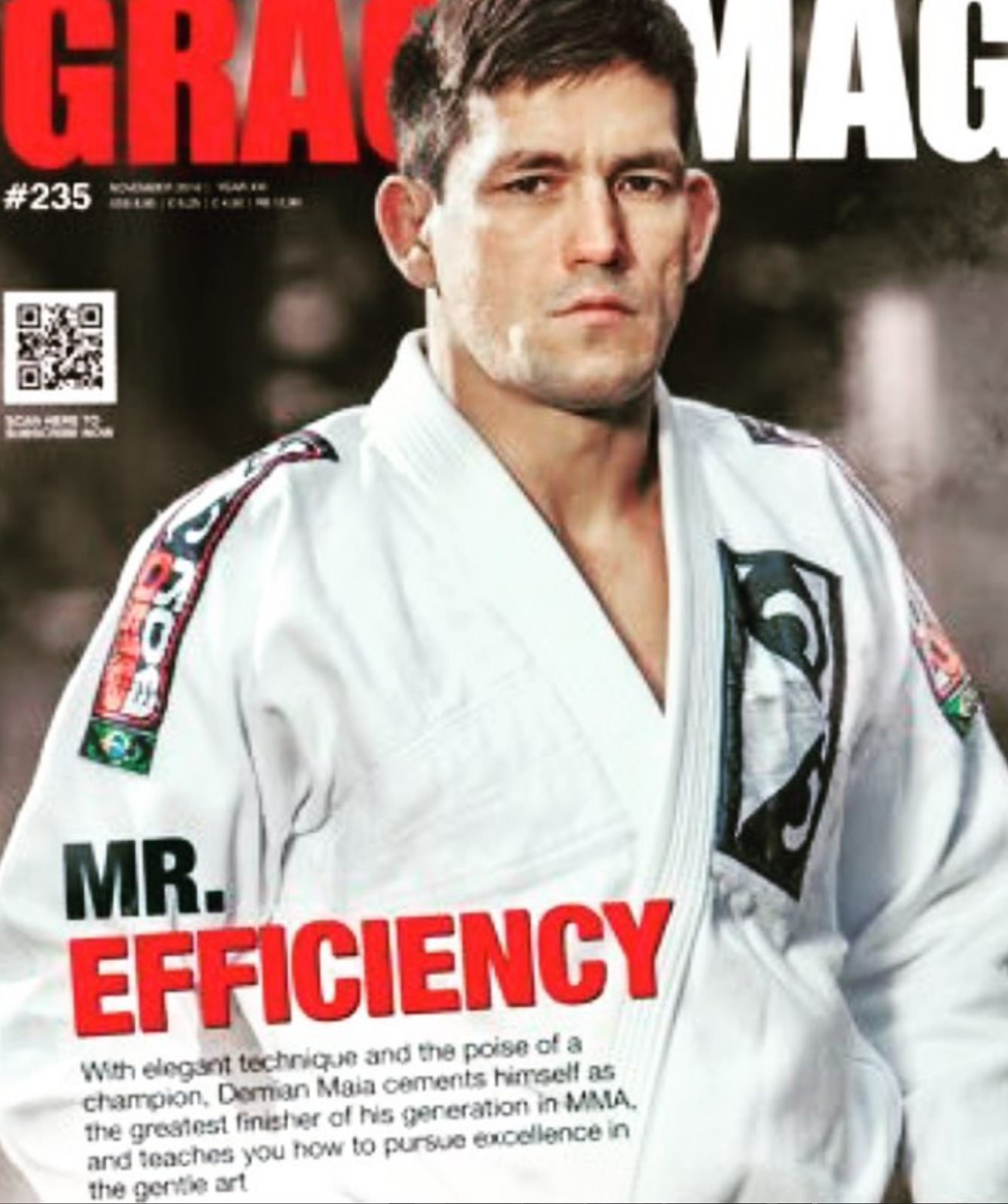Breaking Through Plateaus: Demian Maia's Guide to Overcoming Intermediate Jiu-Jitsu Challenges


No one ever wants to hit a plateau when they’re trying to develop a skill. It doesn’t matter if that skill is a martial art like jiu-jitsu or a new language. More than just a pause in progress, the feeling of being in a rut can be deeply frustrating and make training feel like a chore.
The good news is that other people have been there before. Plateauing happens to weightlifters, it happens to pianists, and it happens to even the best jiu-jitsu fighters. In most cases, it comes after years of steady improvements and tends to affect people who are at an intermediate level. In other words, it’s not a problem for white belts or even people who have recently become blue belts because, for them, jiu-jitsu is still new. It’s more likely to happen to established blue and purple belts who aren’t likely to discover entirely new moves or are struggling to find ways to refine techniques they’ve known for years.
According to Demian Maia, one of the greatest grapplers in the history of MMA and a 5th degree black belt in jiu-jitsu, he believes there are three things that intermediate jiu-jitsu fighters should do to stay in the right mindset, break out of any ruts they may fall into, and continue making significant gains.
Never Stop Asking Questions
Demian says that one of the things that accelerated his game was when he started teaching private one-on-one classes as a purple belt. Demian suggests that if you can find time to do so, you should ask your instructor if you can do the same.
This helped Demian in two ways. The first is that it made him return to the absolute fundamentals of his mechanics. Since he had to explain each movement to his students and walk them through the steps and philosophy behind each of the self-defense techniques taught to white belts, it gave him the opportunity to really focus on the most elemental components of jiu-jitsu.
The second reason goes back to something that his master, Fábio Gurgel, had always encouraged him to do, which is to ask why whenever he was trying to better understand a technique. Why do you use monkey grip in certain scenarios? Why do you move the head to one side and not the other in a specific choke? Inevitably, these same questions came up during his one-on-one classes and Demian had to think of good answers for them.
What he realized during this time was that he had not posed these questions to himself for years. Instead of really thinking about what he was doing, he had internalized the moves and come to rely solely on muscle memory.
Even if you don’t teach, Demian says, you should be constantly questioning and challenging your understanding of jiu-jitsu. “You have to do this exercise all the time, all your life. By doing that, you’re going to deeply understand the game.”
Improve Your Transitions
When you’re a white belt, training typically means focusing on a particular move while you’re rolling with a partner. Especially for those who are new to martial arts, you need a lot of time on the mat practicing each specific fundamental before they become second nature. If you are ever going to improve your technique, you need to put in the reps.
However, as you advance, you need to start thinking about how these moves fit into a sequence and how to transition from one move to the other. For example, following a sweep you can hold the position, or you can immediately jump to either half guard or start to pass their guard. While there is nothing wrong with the first option, the second one can further disorient your opponent, which increases the likelihood that they will make a mistake. More mistakes for them means more opportunities for you.
Learning how to seamlessly transition from one move to the other also increases your efficiency. By focusing on transitions and making them as clean as possible, you not only improve your chances of catching your opponent off guard, you also conserve energy.
Competition Is King
Finally, Demian recommends entering competitions. Even if you have no desire to be a professional fighter, competitions are as close to a real-world fight scenario as you can get, and this can improve your game for two distinct reasons.
First, your opponents will be tougher. While some people may say that they are going at 100% when they’re at class, most people hold back because they recognize that they are training. In other words, you may not see them at their best. When they’re competing at a tournament, however, they are most certainly bringing their A game.
Secondly, competing can be hard to do if your only experience with martial arts is at a gym. It tests your technique under pressure and will take you out of your comfort zone. If your opponent is coming after you at full speed, you need to meet them at that level of intensity and you will not have time to hesitate.
Ultimately, Demian’s three pieces of advice come down to looking at jiu-jitsu from a new perspective, thinking more about the context of moves rather than just how well you can perform them in a vacuum, and pushing yourself to that next level.

